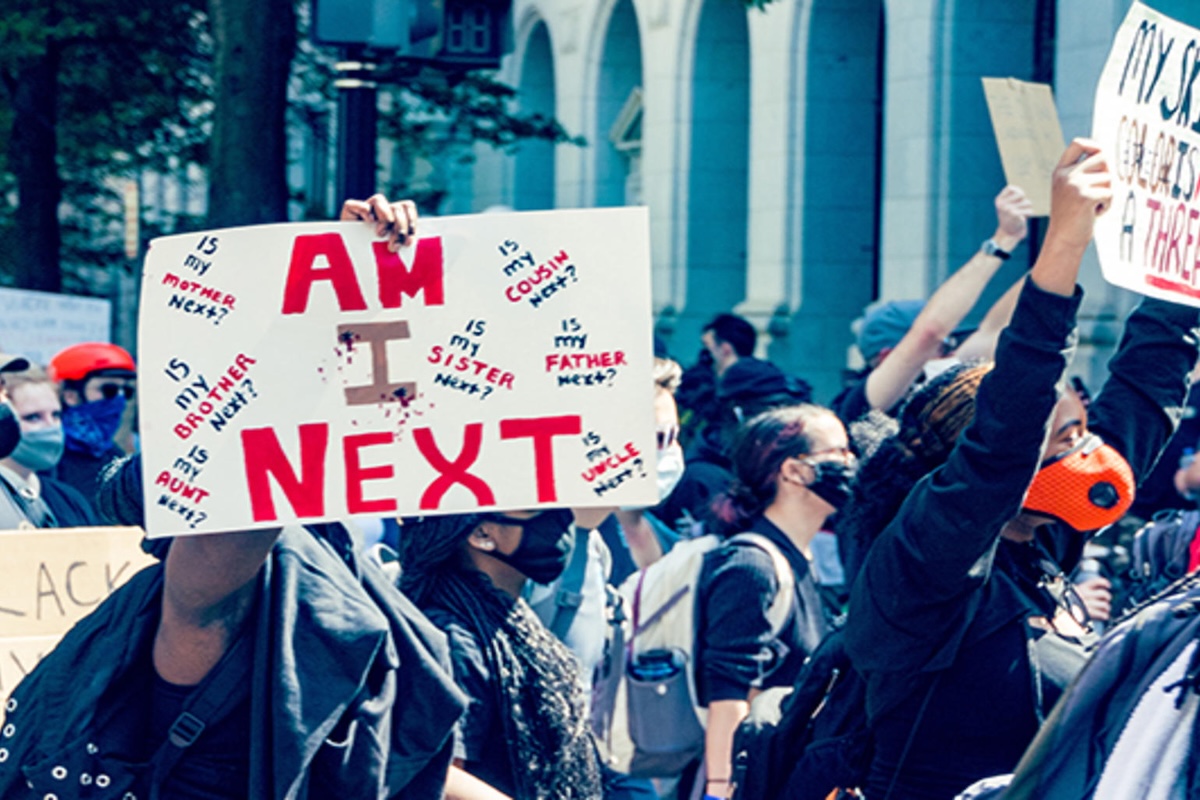Image credit: Ted Eytan. Published under Creative Commons license.
A few weeks ago, I was sitting at a hotel bar in Omaha, Nebraska. It’d been a long day, and I was nursing a beer—and a shot. On the other side of the bar were a group of guys, older, younger, mostly Republican from what it sounded like.
Into their midst walked a young trans-woman, who approached the bartender to ask for a glass of pinot. You could hear a pin drop, literally.
After a dismissive turn of the head the bartender let her know, a sneer in his tone, that in fact, no, there was no pinot. The woman strode to the far end and took her seat with another friend, poised, unsurprised. The men at the bar laughed.
Donald Trump’s commanding electoral victory last week is sending shivers through vulnerable communities across this country: immigrants, minorities, members of the LGBTQ+ community, elements of our broader US society that have waged long, hard-fought battles to win the right to nothing so much as a modicum of dignity, respect.
Today, many of them are bracing for the worst.
Mass deportations threaten to rend families and entire communities apart, with Trump’s pick of former ICE Director Tom Homan to head DHS raising the specter of family separations, a strategy Homan developed and has promised to return to with a vengeance. This even as the growing surge of Christian nationalism, meanwhile—so much at the core of Trump’s MAGA movement—sets its sights on everything from abortion to trans rights.
In a piece the morning after Harris’ defeat, The New York Times columnist David Brooks wrote of the “crisis of respect,” the apparent disdain for working-class concerns within the Democratic machine. “There’s something off about an educated class that looks in the mirror of society and sees only itself,” he writes. “As the left veered toward identitarian performance art, Donald Trump jumped into the class war with both feet.”
Indeed, he did. And it seems, at least this election, to have paid off in spades.
Trump won 46% of the Latino vote, beating out George W. Bush’s previous vote take in 2004. A majority of Latino men, specifically, went for Trump. Asian voters also ticked right, even in deep blue San Francisco—my hometown. Trump won outright in Dearborn, Michigan, a majority Arab city. And, while Black voters in general remained solidly Democrat, Trump continued to attract a significant share of Black male voters.
Exit polls show a majority of Trump voters cited the economy as their primary concern.
“This is exactly the sort of braindead symbolism that exemplifies the Democrats who rule our state,” Josh Barro wrote on his Substack column, Very Serious, describing Democratic lawmakers’ push to enshrine abortion rights in New York, a state where it is already legal and where residents pay the highest taxes for less than stellar returns. “They pat themselves on the back for a formalistic, legal declaration of the rights of the people who live here, and meanwhile, people of all races and identities flee New York for other, officially less ‘inclusive’ places where they can actually afford a decent quality of life.”
New York indeed has seen its population decrease in recent years.
With all this, it’s not hard to see how Harris’ message of “We are not going back” fell so flat. Ok, we’re not going back. But apparently, we’re not going forward, either.
Compared to that, Make America Great Again—despite the kitsch, despite Trump’s repeated depictions of America as a hellscape, despite the motto’s harking to a darker, fascist era—begins for some to sound hopeful, aspirational.
On an Uber ride in Washington DC recently I chatted with my driver, a 32-year-old Afghan named Fahim who immigrated to the US 5 years earlier. He told me of how he left behind his studies in political science, his family, friends, to come live alone in DC, where he now spends up to 14 hours a day driving just to make ends meet.
Eventually, this being DC and with the election weeks out, our talk turned to Trump, to Harris. My voice grew heated, imploring this young man whose life experience, whose struggles far surpassed anything in my own life, to heed my warnings about the dire threat Trump posed to the country, to the very planet.
Stepping out of the car, I thanked him for the ride, and for the conversation. And he thanked me. “I learned a lot,” he said. And as he drove off, he added, “I don’t know. I just think we have to make America great again.”
I agree. The question is, how do you define “great?”
For the woman at the bar back in Omaha, the answer might start with a shred of respect, something that marginalized communities in years past have won precisely by putting their identities forward.
The Movement for Civil Rights, for gay rights, immigrant rights, trans rights, all challenged society to put its prejudices aside and to make space for those who, to draw a simple analogy, simply want a glass of wine at the end of a long day.




